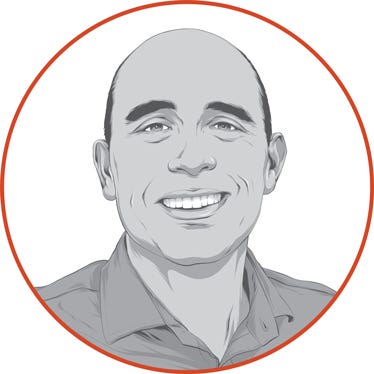
Have you ever wondered what an employee was thinking when they really messed up? Have you ever wondered how they spent their day? You sent them to do a simple task and they took a lot longer than you thought. What about the employees that never seem to pull together as a team?
A farmer once told me that his employees would pile three deep in a pickup to go for parts; Others would clock out at the local bar and grill. Other employees would get stuck on a problem and instead of asking for help, would keep gnawing away at the issue with no headway.
These employees were left to their own devices and mismanaged their days. There wasn’t enough accountability, communication or structure. They had no fences. They were free range employees.
Chad, a farmer in North Dakota, has many great equipment operators on his team but they don’t mesh together. Each of his employees just want to work by themselves on individual tasks. Since there is little to no teamwork, Chad’s days are filled with answering questions they could have asked each other.
These problems stem from holding on to employee management practices that were no longer relevant for the scale of the farm. As farms grow and become more complex it’s much more difficult to have one-on-one time between owner/operator and employees.
So how do you manage your workforce differently?
Hire Well
In order to have a good workforce you need the highest quality employee you can find. Much has been written on this topic but you need quality material to work with. Get the highest talent you can find and remember, finding good employees is not just about the pay scale.
Onboarding
This often is overlooked and misunderstood. Gallup has found only 12% of employees felt they had a great onboarding experience. Yet the first thirty days of employment often sets the die for the remainder of their time on your farm. These first few days is where you set expectations for work standards, punctuality, communication, and cement culture you desire.
While not a complete list, here are some best practices for onboarding:
Formally take them around and introduce them to the team. Explain the roles each team member plays and something personal about them. Start building relationships between the established and new employees.
Give them a review of the farm history, culture and core values you strive for.
Tell them the vision and plan for the farm beyond the current production cycle.
Explain what is most critical for the farm to accomplish in the next sixty days.
Review what attitudes, attributes and actions will make them a valuable employee.
Set a review schedule and stick with it.
If you have the employee job shadow, choose wisely who they shadow.
Leadership and Structure
We routinely survey and interview employees as part of our Executive Farmer Network. In every case and every farm, improved communication is what employees said the needed.
Here are the most effective traits we have found:
Ask questions of employees and get them to think for themselves instead of telling them the answer.
Coach more, give fewer directives. Top employees don’t need or want to be micro managed.
Make it safe to fail. Everyone, including the boss, will mess up. As long as it isn’t repeated, make it a learning experience.
Set clear priorities for the next week, month and year. This will help your employees become long term thinkers who embrace the vision.
Set the boundaries for decision making and work. Employees need to understand what you expect from them and where their authority starts and stops.
Reviews allow them and you to get things out in the open and not let things fester. The best reviews are for learning and strengthening weak areas, not simply finding fault.
Celebrate Success. Say Thank You!
All employees need boundaries - fences if you will, so they don’t go “free range” on you. Free range food may be all the rage but boundaries are good for you and your employees. Good Luck!
Tim Schaefer is an executive management coach and succession planner for farms and agribusinesses. Read his blog, Transitions and Strategies, at FarmFutures.com. If you have a management or succession planning question, contact [email protected]
The opinions of the author are not necessarily those of Farm Futures or Farm Progress.
About the Author(s)
You May Also Like






